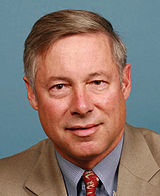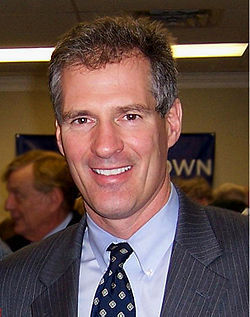Matthew Yglesias's Blog, page 2461
December 29, 2010
Currency Union in the Digital Age

Paul Krugman reviews the debate over the euro. Anyone who's been following his blog will already be familiar with the argument that currency integration without labor market integration or fiscal integration has a lot of problems. What I was intrigued to learn about were the surprisingly modest benefits:
What about those benefits from monetary integration? Jeff Frankel has a good piece on this: pre-euro work had suggested very large trade gains, but the actual experience has been much more modest — not nothing, but nothing like the high hopes some had for the euro.
If you read Frankel's piece, you'll see he doesn't really have an explanation for it. I wonder if it's not related to the point I made about the euro and tourism. In 1980, European monetary integration would have had huge practical benefits for international travelers. In 2010 where you can use ATM cards and credit cards just about anywhere, it's not that big a deal. For larger scale trade the issue would be less the de-cashing of the economy as the spread of computers. In 1980, I imagine it would really have been quite burdensome for many firms to check prices at suppliers in a half dozen different countries each with their own currency. But today even the smallest firm can have a computer and a spreadsheet program—a free online one, even—and do this pretty easily.
In other words, what is and isn't an optimal currency zone may be dependent on technology, and digitization may be setting the bar higher.


Senate Obstruction Delays Obama Budget

Mary Landrieu (D-LA)
I read a couple of books recently dedicated to fretting about executive power and my reaction to them is to sympathize but also to wonder what the alternative is. A legislative branch that wants to seriously check the executive in an effective way over time needs to be respected by the population and to be worthy of respect. Instead, Karen Tumulty reports:
President Obama now expects to release his fiscal 2012 budget in mid-February, about a week later than the timetable set out under the Budget Act of 1974, administration officials said Tuesday.
The White House needs additional time in part because of a six-week delay in the Senate confirmation of new budget director Jacob Lew.
Sen. Mary Landrieu (D-La.) had put a hold on Lew's nomination to protest the administration's moratorium on offshore oil drilling. When the administration lifted the moratorium in October, Landrieu continued the hold, saying she objected to the way drilling permits were being issued. Lew finally was confirmed in November.
Whether the budget comes out a week late or not is not a big deal, but the Budget Act should be followed. But if congress persists in using its powers primarily to impede the basic functioning of government in pursuit of very parochial interests, then you end up with more executive unilateralism.


Fannie and Freddie
On November 22, I reviewed conservative thinking about Fannie Mae and Freddie Mac and issued a prediction:
In other words, the Bachus/Calabria plan is to: a) keep Fannie and Freddie in place as-is indefinitely, b) go fishing for scandals, c) to "bash" the bailout while keeping it going, and d) to chortle to The Washington Times about what a "political no-loser" this is for Republicans. But I suspect the quantity of actual reforming that gets done will be similar to what we saw from GOP-controlled congresses in the 1995-2006 era.
Today, via Steve Benen, we see that I was right:
"We recognize that some things can be done overnight and other things can't be," said Rep. Scott Garrett, (R., N.J.), incoming chairman of the House Financial Services subcommittee that oversees Fannie and Freddie. "You have to recognize what the impact would be on the fragile housing market as it stands right now."
Cautious statements from key Republicans on the House Financial Services Committee are a shift from the debate over the Dodd-Frank financial overhaul during the spring and summer, when Republicans blasted the Obama administration for leaving Fannie and Freddie out of that legislation.
One of the weirder things about the discussion in the media during the 2010 election campaign was people were acting like there was some big mystery about the likely policy direction of the Republican Party. But we're not talking about a 1952 scenario where a group of people who've been out of office for a long time suddenly come back. There was a Republican congress from 1995 until 2006. There was a Republican President from 2001 until 2008. We had unified GOP control in 2003, 2004, 2005, and 2006 plus most of 2001. The agenda was cutting taxes and making regulatory supervision of various things as lax and business friendly as possible.


Fred Upton, Shifting Ever-Rightward

The really distressing political trend of our time is that not only did the 111th Senate fail to pass a meaningful bill to reduce carbon emissions, but the overall political context has shifted enormously away from good sense and in favor of special interests. For example, read my colleague Brad Johnson on the shifting thoughts of Rep Fred Upton (R-MI) on climate change:
Upton once considered a "moderate on environmental issues," but has worked hard to refashion himself as a hard-right defender of pollution in recent months. Some Tea Party groups tried to block Upton from taking the gavel of the House Energy and Commerce Committee, attacking his past support for energy-efficient light bulbs. Upton previously claimed that "climate change is a serious problem" and that "the world will be better off" if we reduced carbon emissions. However, in the course of the past two years — as he received $20,000 from Koch Industries — Upton has shifted to oppose not only cap-and-trade legislation but any form of limits on climate pollution whatsoever, instead supporting investigations against climate scientists and lawsuits against the EPA and its supposed "unconstitutional power grab that will kill millions of jobs".
I know it hurts the feelings of a lot of my right-of-center friends when people suggest that pollution money from the Kochs has some impact on their movement. Indeed, they quite enjoy making sport of the assertion that the Koch family's pollution-fueled cash has any impact on anything. And yet I think that if you examine the classic liberal canon you'll find not a single iota of support anywhere in it—not in Smith not in Mill not in Bastiat not in Hayek not in Friedman not anywhere—for the assertion that it's an important free market principle that the Koch brothers should be allowed to put pollution into the air without compensating the billions of people around the world who are impacted by this activity. And yet an absolute consensus has developed around this idea in right-of-center American circles, including among people like Rep Upton who knew better in the very recent past.


Police Reform in Mexico
Here's a very bad case of regulatory capture:
Efforts to clean up local police have met bloody resistance from the cartels. The new mayor of Santiago, an upscale colonial town near Monterrey, was kidnapped, tortured and executed by members of his own police this summer after he had pledged to clean up local police.
This is why hand-waving in the direction of "small government" is such an inadequate response to the very real problem of making public sector institutions perform well. Rigid public choice theory implies that even the nightwatchman state is impossible to implement. The least-controversial spheres of government activity are the most dangerous ones—the ones with the guns and helicopters and dungeons and aircraft carriers and nuclear missiles—and unless we can make these public institutions more-or-less serve the public interest, we're doomed. Effective public institutions are difficult to create, but not impossible, and they're extremely valuable.


2012 Primaries

The 2000 and 2006 Senate elections both went well for Democrats, which means they have a lot of ground to defend in 2012 and will probably lose seats. But there's also the chance of a number of GOP incumbents facing primary challengers, including the very popular Scott Brown:
"I think that there will be a primary challenge," said Christen Varley, president of the Greater Boston Tea Party. "There's enough of an underground movement in the Tea Party movement as seeing him as not being conservative enough. There probably will be multiple people who attempt to run against him."
To the best of my knowledge, moderate Republicanism remains a pretty strong force in Massachusetts where beyond Scott Brown a series of moderate Republican gubernatorial candidates ran and won statewide in 1994, 1998, and 2002. But you would have said the same about Delaware until 2010, so anything's possible.


December 28, 2010
Endgame
My hands chained to clouds:
— Jeffrey Goldberg gets apocalyptic.
— Ben Wallace-Wells profiles Marty Peretz, who's apparently been forced to abandon the title of TNR Editor in Chief.
— New streetcar brings gentrification fears to lego city.
— The legal structure of large, diversified financial institutions.
— The velocity of money.
— It's too bad You Shall Know Our Velocity isn't a novel about monetary policy.
Wavves, "Linus Spacehead".


Taxes and Population Growth
Here's some nonsense from Michael Barone:
[Population] growth tends to be stronger where taxes are lower. Seven of the nine states that do not levy an income tax grew faster than the national average [over the past 10 years]. The other two, South Dakota and New Hampshire, had the fastest growth in their regions, the Midwest and New England. Altogether, 35 percent of the nation's total population growth occurred in these nine non-taxing states, which accounted for just 19 percent of total population at the beginning of the decade.
I'm a bit surprised to see Greg Mankiw endorse this since it's incredibly sloppy economics. What kind of economist forgets about prices? Surely Mankiw's noticed that land in Cambridge, MA is more expensive than land in New Hampshire. If housing supply were totally unconstrained, then it might make sense to look purely at population flows, but it's not. Note that population is rising in virtually every state, so it's not like people are fleeing high tax jurisdictions. But the natural tendency is for population increases to be concentrated in places where it's easy to get permission to build new houses for people to live in. After all, where else are people going to go? For more people to live in Harvard Square it would have to be legal to build more housing units there, and it's not.
This strikes me as an example of the American right's tragic over-emphasis of income tax issues, since the correct explanation here is also free market and "rightwingy" but weirdly neglected. I don't think tax-averse rich people are going to flee New York and Silicon Valley en masse to take advantage of low taxes in Sioux Falls. But middle class people really will flee to places where they can afford homes.


Top Five Nonfiction Books I Read in 2010
I'm not going to claim all these books were actually published in 2010, but they're all good and I read them all this year:
— Gary Gorton's Slapped By the Invisible Hand: The Panic of 2007 is, in my view, the best explanation available of the financial crisis.
— I heaped lavish praise on Peter Hessler's Country Driving: A Journey Through China from Farm to Factory just the other day and it's still awesome.
— Daniel Okrent, Last Call: The Rise and Fall of Prohibition is excellent popular history of a period in American history that's not very well understood.
— Julia Preston and Sam Dillon Opening Mexico: The Making of a Democracy is a lively and important discussion of historic events that happened right next door in the recent past without people really noticing properly.
— Edward Glaeser's Triumph of the City: How Our Greatest Invention Makes Us Richer, Smarter, Greener, Healthier, and Happier won't be released until February, but I've already read it and it's great (proper review forthcoming).
I also read a bunch of books about cooking, none of which I regret but none of which truly stand out either. There's too much overlap and repetition. I still think the best piece of cooking advice I've ever read is Corby Kummer's point that when it comes to knives you should own fewer, but higher-quality blades.


Obama's Katrina
I was aware in a general sense that the NFC West sucks. But on Sunday I was on a Houston-BWI flight featuring DirectTV which I naturally paid for in hopes of watching some football only to discover that the version of DirectTV the flight was carrying was featuring an NFC West game for some unfathomable reason. And only now am I becoming fully aware of the looming disaster we're facing.
To make a long story short, if the Seattle Seahawks beat the St Louis Rams on Sunday, then a team with a losing record will make it into the NFL playoffs. Instead of calling the Eagles owner about Michael Vick or energy efficiency or whatever, Obama needs to be huddling with the Seahawks owner to get them to throw the game.


Matthew Yglesias's Blog
- Matthew Yglesias's profile
- 72 followers



